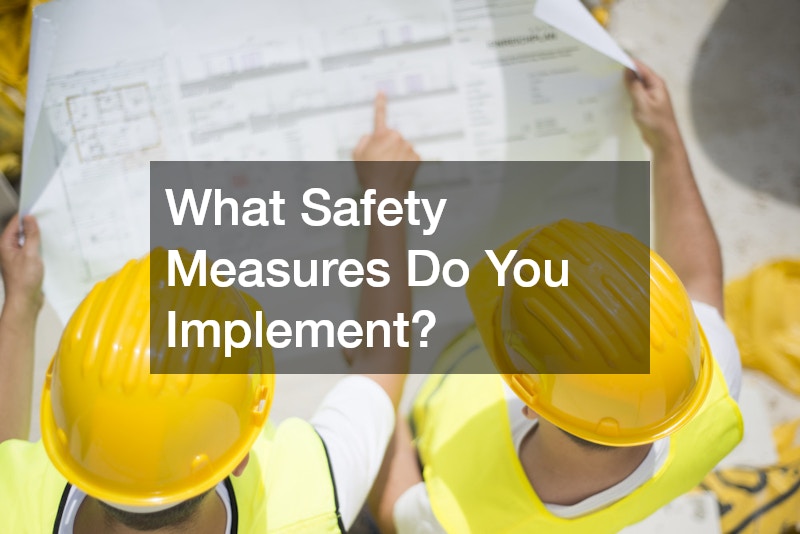10 Questions to Ask Before Hiring a Roofing Contractor
When it comes to maintaining, repairing, or replacing your roof, hiring the right professional is crucial. Your roof is one of the most important parts of your home, protecting you from the elements while adding to the overall appearance and value of the property. Choosing the wrong contractor can lead to unnecessary expenses, poor workmanship, and even long-term damage. This is why it’s essential to ask the right questions before making a decision.
By being informed and proactive, you can avoid common pitfalls and ensure you’re hiring someone who is both qualified and trustworthy. Whether you need roof repair after a storm, are considering a complete replacement, or simply want to assess your options, these questions can guide you through the process. In this article, we’ll explore ten key questions you should ask any roofing contractor before signing an agreement. From understanding their licensing and insurance to clarifying payment schedules, each question is designed to help you make the best possible choice for your roofing needs.
1. Are You Licensed and Insured?

Importance of Licensing
Before hiring a roofing contractor, it’s vital to confirm that they are properly licensed. In Australia, roofing professionals must adhere to specific licensing requirements that vary from state to state. A licence shows that the contractor has met the minimum qualifications and complies with safety and building codes. Unlicensed contractors may offer cheaper rates but often cut corners, putting your home and investment at risk. This could lead to further costs down the line if repairs or legal disputes become necessary. Always ask for their licence number and verify it independently.
Types of Insurance Required
Beyond licensing, insurance is equally important. A reputable roofing contractor should carry both public liability insurance and workers’ compensation. Public liability insurance protects you if the contractor accidentally damages your property, such as cracking a skylight or damaging the gutters. Workers’ compensation covers any injuries sustained by workers on your property, ensuring you’re not held financially responsible for medical expenses or lost wages. Without these insurances in place, you could be left footing the bill for accidents or damage you didn’t cause.
Verifying Credentials
Don’t just take their word for it — ask for proof. Reputable roofing professionals will readily provide copies of their licence and insurance certificates. You can also verify these details with the relevant regulatory bodies in your state or territory. Asking these questions early can save you from legal and financial headaches later. Be wary of any contractor who hesitates to show documentation or brushes off your concerns — this can be a red flag.
2. How Long Have You Been in Business?
The Value of Experience
Experience matters, especially in roofing, which often involves complex work at significant heights. Contractors with several years in the industry are more likely to have encountered and resolved a wide range of challenges. Their knowledge can help ensure your roof repair or reroofing project runs smoothly. They’re also more likely to understand local weather patterns, council regulations, and which materials hold up best in your region.
Reviewing Company History
When evaluating experience, look beyond just the number of years. Consider whether the business has operated continuously under the same name. Companies that frequently change names or ownership may be trying to distance themselves from poor past performance. A stable business is more likely to stand by their work, and longevity often reflects customer trust.
Evaluating Work Longevity
A long-standing business also suggests stability and reliability. You want a roofing contractor who will still be around years later to honour warranties and provide ongoing maintenance if needed. Ask how many projects they’ve completed locally, and whether they’ve worked on homes similar to yours. Experienced contractors often have a deeper understanding of what specific challenges may arise on older homes, steeply pitched roofs, or properties with unusual layouts.
3. Can You Provide References?
Checking Customer Testimonials
Word of mouth remains one of the most reliable indicators of quality. Ask the contractor for written testimonials or links to reviews from previous customers. Take note of any recurring themes in the feedback — both positive and negative. Look for comments about punctuality, communication, cleanliness, and whether the contractor followed through on promises.
Contacting Previous Clients
Where possible, speak directly with past clients. Ask them about their experience with the contractor, the quality of the work, and whether the project was completed on time and within budget. This can give you valuable insight into what it’s really like to work with the contractor. Hearing directly from homeowners also gives you a chance to ask specific questions about things that matter to you.
Assessing Reputation
Beyond individual references, look at the contractor’s overall reputation in the community. Check online reviews, social media pages, and even industry associations to get a broader perspective on their professionalism and reliability. Some contractors also belong to trade organisations or have won awards — these can be signs of their commitment to quality.
4. What Warranty Do You Offer?

Understanding Warranty Terms
A strong warranty can provide peace of mind by covering potential issues that may arise after the project is completed. Make sure you understand what the warranty covers, how long it lasts, and what conditions might void it. Some warranties are transferable if you sell your home, which can add value to your property.
Warranty on Materials
Many roofing materials come with manufacturer warranties that cover defects or premature failure. However, these warranties are often only valid if the materials are installed correctly. Ask your contractor which brands they use and how the manufacturer’s warranty applies to your project. A good contractor will know the ins and outs of each product they recommend.
Warranty on Workmanship
Equally important is the contractor’s warranty on their workmanship. This covers mistakes or poor workmanship that could lead to leaks, structural damage, or other issues. A good reroofing contractor will stand by their work and address any problems that arise. Don’t settle for vague promises — get the warranty terms in writing, including any limitations or exclusions.
5. Do You Offer Written Estimates?
Benefits of Detailed Estimates
A written estimate helps protect both you and the contractor by clearly outlining the scope of work, materials to be used, labour costs, and any additional charges. This transparency ensures there are no surprises once the project is underway. It also serves as a reference point in case disagreements arise during or after the project.
Comparison of Estimates
If you’re getting quotes from multiple contractors — which is highly recommended — having written estimates allows you to compare them fairly. Look beyond the total price to understand what’s included and whether corners might be cut. Sometimes a lower bid omits necessary work or uses inferior materials, which can end up costing you more in the long run.
Clarifying Costs Involved
Be wary of vague or verbal estimates. A professional roofing contractor should be able to provide a detailed, itemised document and answer any questions you have about specific costs. This can prevent misunderstandings and disputes later on. Also, ask about possible additional charges and how those will be communicated and approved before any extra work begins.
6. What Is Your Timeline for Completion?
Project Duration Expectations
Understanding how long your roofing project will take is crucial for planning purposes. A reliable contractor should be able to provide a realistic timeline based on the scope of work and current workload. They should also let you know what times of day their crew will be on-site so you can plan around it.
Handling Delays
Ask how they handle potential delays due to weather, supply shortages, or unforeseen complications. While some delays are unavoidable, a professional contractor will keep you informed and adjust the schedule as necessary. Knowing how they plan for contingencies can help you feel more prepared.
Setting Realistic Deadlines
Be cautious of contractors who promise unrealistically fast completion times. Quality roofing work requires time and precision, and rushing the job could lead to mistakes or substandard results. Discuss what happens if the work runs over schedule and whether penalties or additional charges apply.
7. What Safety Measures Do You Implement?

Enforcing Safety Protocols
Roofing work is inherently risky, so it’s essential that your contractor follows strict safety protocols. Ask about the safety equipment they use and how they minimise risks for both workers and residents. Barriers, harnesses, and proper footwear are just some of the tools they should have in place.
Impact on Liability
A contractor who prioritises safety not only protects their employees but also reduces your liability as the property owner. Make sure they comply with all local workplace health and safety (WHS) regulations. This ensures everyone stays protected throughout the project.
Training and Certification
Inquire about the training and certifications their workers have completed. A well-trained team is more likely to adhere to safety procedures and complete your project without incident. Some contractors also invest in ongoing training to keep up with the latest safety techniques and regulations.
8. Will You Subcontract the Work?
Understanding Subcontracting
Some roofing contractors hire subcontractors to perform part or all of the work. This isn’t necessarily a bad thing, but it’s important to know who will actually be working on your roof. The main contractor should remain your point of contact and take full responsibility for the finished product.
Assessing Subcontractor Qualifications
If subcontractors are involved, ask about their qualifications and experience. Make sure they are also licensed and insured, and that the main contractor will oversee their work. You have the right to know who’s on your property and whether they meet the same standards you expect from the contractor.
Impact on Quality Control
Having too many parties involved can sometimes lead to communication issues and inconsistent workmanship. Clarify how the contractor ensures quality control when subcontractors are used. Ideally, they should personally inspect all work and maintain regular communication with you throughout the project.
9. How Do You Handle Unforeseen Issues?
Common Unexpected Problems
Even the best-planned roofing projects can encounter surprises, such as hidden water damage, structural issues, or unexpected weather conditions. A professional contractor should have a plan for addressing these problems and keeping the project on track.
Communication During Issues
Ask how the contractor communicates if additional work or costs become necessary. You don’t want to be blindsided by sudden changes without explanation or approval. Clear, honest communication during unforeseen circumstances helps preserve trust and avoids conflict.
Problem Resolution Strategies
A good roofing contractor will work with you to find practical, cost-effective solutions when unforeseen issues arise. Their ability to handle challenges professionally speaks volumes about their reliability. Look for a contractor who remains calm under pressure and proposes realistic options rather than excuses.
10. What Payment Schedule Do You Require?

Understanding Payment Plans
Different contractors have different policies when it comes to payment schedules. Some may require a deposit upfront, while others may bill in stages as the work progresses. Make sure you understand what’s expected of you at each stage and what milestones trigger payment.
Negotiating Terms
Clarify the payment terms and don’t be afraid to negotiate. A fair payment plan should reflect the progress of the project and protect you from paying too much too soon. Avoid contractors who demand full payment before work begins — this is often a sign of trouble.
Protecting Against Overpayment
Avoid paying the full amount before the work is completed and inspected. Holding back a portion of the payment until you’re satisfied with the final result gives you leverage if any issues arise. Document all payments made and get receipts for every transaction.
Conclusion
Hiring a roofing contractor is more than just finding someone who can get the job done. It’s about choosing a professional you can trust to deliver quality work that protects your home and investment. By asking these ten questions, you equip yourself with the knowledge needed to make an informed decision.
From verifying their licensing and insurance to understanding their warranties, timelines, and safety practices, every detail matters. Take the time to speak with past clients, compare written estimates, and clarify payment terms. Doing so ensures you avoid common mistakes and hire someone capable of meeting your needs.
Whether you’re planning a minor roof repair, engaging a reroofing contractor for a complete replacement, or simply exploring your options, the right contractor will guide you through the process with professionalism and transparency. Don’t rush the decision — your roof deserves the best care possible, and so do you.



